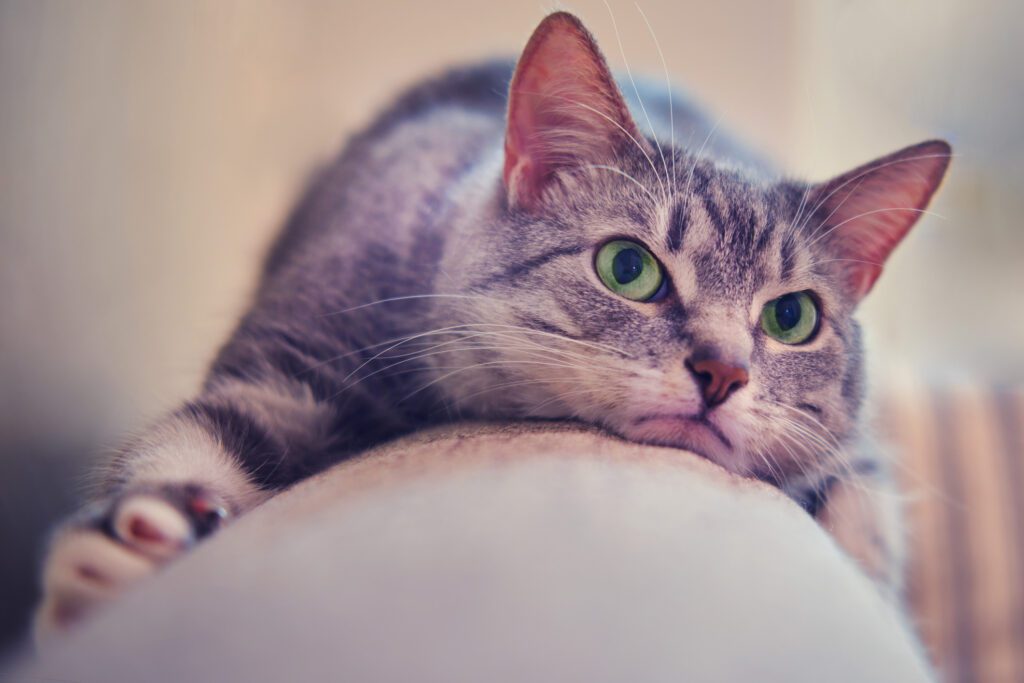10 Signs That Your Cat Is in Pain
As pet parents, our biggest challenge is understanding our feline friends, especially when they’re hurting. Unlike humans, cats have mastered the art of hiding their pain, a survival instinct passed down from their wild ancestors. Thus, spotting signs of discomfort in our feline companions becomes paramount. This blog post will detail the top 10 signs your cat is in pain and when to seek veterinary assistance in Milwaukee, WI.

Understand Your Cat’s Behavior: Recognizing Signs of Pain
The ability to decode your cat’s behavior can mean the difference between timely care and prolonged discomfort. As a cat owner, it’s essential to learn your pet’s normal behavior and watch out for any significant changes that could signal a health concern.
Top 10 Signs of a Cat in Pain
- Change in Appetite: A sudden loss of appetite or thirst can be an early sign of pain or discomfort. If your cat is eating or drinking less than usual, it may be time to consult with us.
- Hiding: Cats in pain often hide more frequently. This behavior stems from their instinct to protect themselves when feeling vulnerable.
- Litter Box Issues: If your feline friend is experiencing pain, they might have trouble using the litter box or show changes in frequency or consistency of their elimination.
- Vocalizing: While some cats are naturally vocal, excessive or unusual vocalizations such as howling or yowling can be a cry for help.
- Aggression or Fear: Changes in mood, like increased aggression or fear, could be a cat’s way of communicating that they’re in pain.
- Lethargy: If your active feline suddenly becomes lethargic or less playful, it could be a sign they’re suffering.
- Grooming Changes: Over-grooming or under-grooming can both be signs your cat is in pain. Look out for bald patches or a dull, matted coat.
- Body Language: Cats in pain often adopt unusual body postures such as arching their back or continuous crouching.
- Changes in Breathing: Rapid or shallow breathing can be signs of discomfort or pain in cats.
- Altered Mobility: Difficulty jumping or climbing, limping, or reluctance to move can be a clear sign your cat is in pain.
How Frontier Veterinary Urgent Care Can Help
As an experienced veterinary care provider in Milwaukee, WI, Frontier Veterinary Urgent Care understands your concerns about your feline friend’s well-being. Our team of experts is trained to diagnose and treat a variety of pet ailments, ensuring that your cat receives the best care possible.
When to Seek Urgent Care for Your Cat
Remember, you know your cat better than anyone else. If you notice any of the above signs and suspect your cat is in pain, don’t wait. Reach out to us at Frontier Veterinary Urgent Care for advice.
Contact us at (262) 206-2055 or visit our website https://frontierveturgentcare.com/ for more information.
Trust your instincts, and always prioritize your cat’s well-being above all else. We’re here to help ensure your furry friend leads a comfortable and pain-free life.
